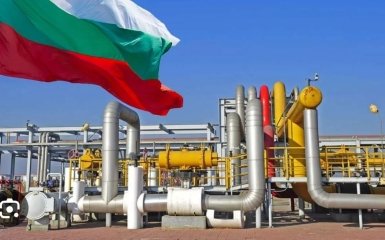Bulgaria's parliament has backed the abolition of a tax on the transit of Russian gas through its territory after Hungary threatened to veto the country's bid to join Europe's Schengen zone.
Bulgaria abolished the tax on the transit of Russian gas
Bulgaria's parliament voted to remove the tax on transit Russian gas due to Hungary's threats to veto the country's stay in the Schengen area.
News BG reports this.
According to Bulgarian MP from PP/DB Radoslav Rybarski at today's media briefing, the National Assembly has removed the obstacle to the country's Schengen membership.
The plenary session also approved a derogation from the taxation of oil imports from Russia, which will come into effect on March 1, 2024.
At issue is the abolition of a tax of 20 leva (about 11 US dollars) per megawatt hour on Russian gas coming from the Turkish Stream pipeline, which went to Hungary and Serbia.
The decision was made in the Bulgarian parliament after the "Renaissance" parliamentary group blocked the rostrum by raising their hands and standing up in the hall.
Hungary's threats: what is known
Last week, Budapest threatened Sofia to veto Bulgaria's entry into the Schengen zone if the country does not cancel transit fees for Russian gas.
Hungarian Foreign Minister Peter Szijjártó said Budapest would lift the veto as soon as the transit fee was raised.
Against the backdrop of ongoing efforts by Western European countries to cut off Russian gas, Hungary receives 4.5 billion cubic meters of "blue fuel" per year from the Russian Federation per the agreement signed in 2021.
The Russian gas tax measure was approved in October to reduce Gazprom's profits.
Last week, the Netherlands gave Bulgaria the "green light" to join the Schengen zone. At the same time, Austria was also an enemy of the decision.
Bulgaria will stop importing oil from the Russian Federation
The Ministry of Energy of Ukraine notes that the Bulgarian government decided to prevent Russia from circumventing Western sanctions.
Before that, it became known that this loophole allowed the Kremlin to attract an additional 1 billion euros for its military operations in Ukraine.
According to the ministry, the abandonment of Russian oil will take place in two stages:
from January 1, 2024, export quotas will be suspended in the country,
from March 1, the import and processing of oil from Russia will be stopped entirely.
Bulgarian Finance Minister Assen Vasiliev noted that such a decision is helpful because it stops exports and money going to Russia and also guarantees stability in the domestic fuel market.
Moreover, the agreements reached are designed to avoid a vote of no confidence in the government scheduled for November 22, 2023.

